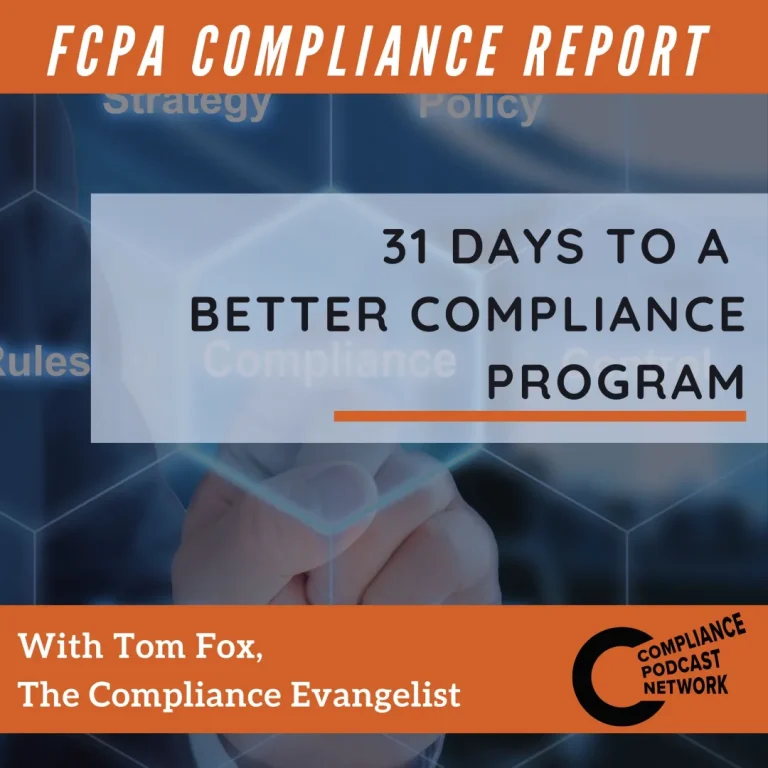James Doty, former Commissioner of the Public Company Accounting Oversight Board (PCAOB) was once asked if the Board or its sub-committee which handles audits was a part of a company’s internal financial controls. He answered that yes, he believed that was one of the roles of an Audit Committee or full Board. I had never thought of the Board as an internal control but the more I thought about it, the more I realized it was an important insight for any Chief Compliance Officer or compliance practitioner as it also applies to compliance internal control.
In the FCPA Resource Guide, 2nd edition, in the Hallmarks of an Effective Compliance Program, there are two specific references to the obligations of a Board. The first is in Hallmark No. 1, which states, “Within a business organization, compliance begins with the board of directors and senior executives setting the proper tone for the rest of the company.” The second is found under Hallmark No. 3, entitled “Oversight, Autonomy and Resources”, where it discusses that the CCO should have “direct access to an organization’s governing authority, such as the board of directors and committees of the board of directors (e.g., the audit committee).” Further, under the US Sentencing Guidelines, the Board must exercise reasonable oversight of the effectiveness of a company’s compliance program. The Department of Justice’s (DOJ) Prosecution Standards posed the following queries: (1) Do the Directors exercise independent review of a company’s compliance program? and (2) Are Directors provided information sufficient to enable the exercise of independent judgment? Doty’s remarks drove home to me the absolute requirement for Board participation in any best practices or even effective anti-corruption compliance program.
A Board’s oversight is part of effective compliance controls, then the failure to do so may result in something far worse than bad governance. Such inattention could directly lead to a FCPA violation and could even form the basis of an independent SOX violation as to the Board.
Three Key Takeaways
- A Board must engage in active oversight.
- A Board should review the design of internal controls on a regular basis.
- Failure to do so could form the basis for an independent legal violation under SOX.






